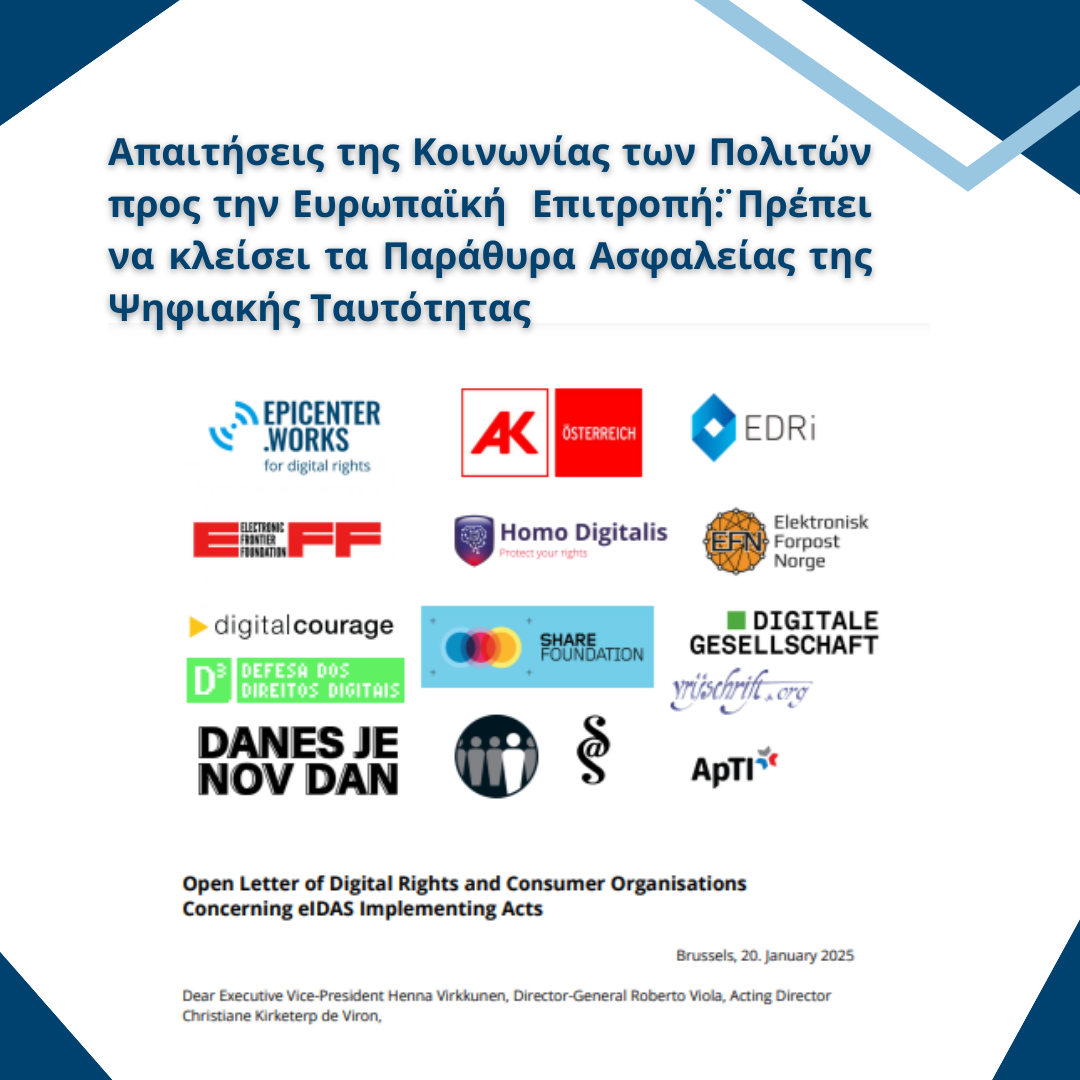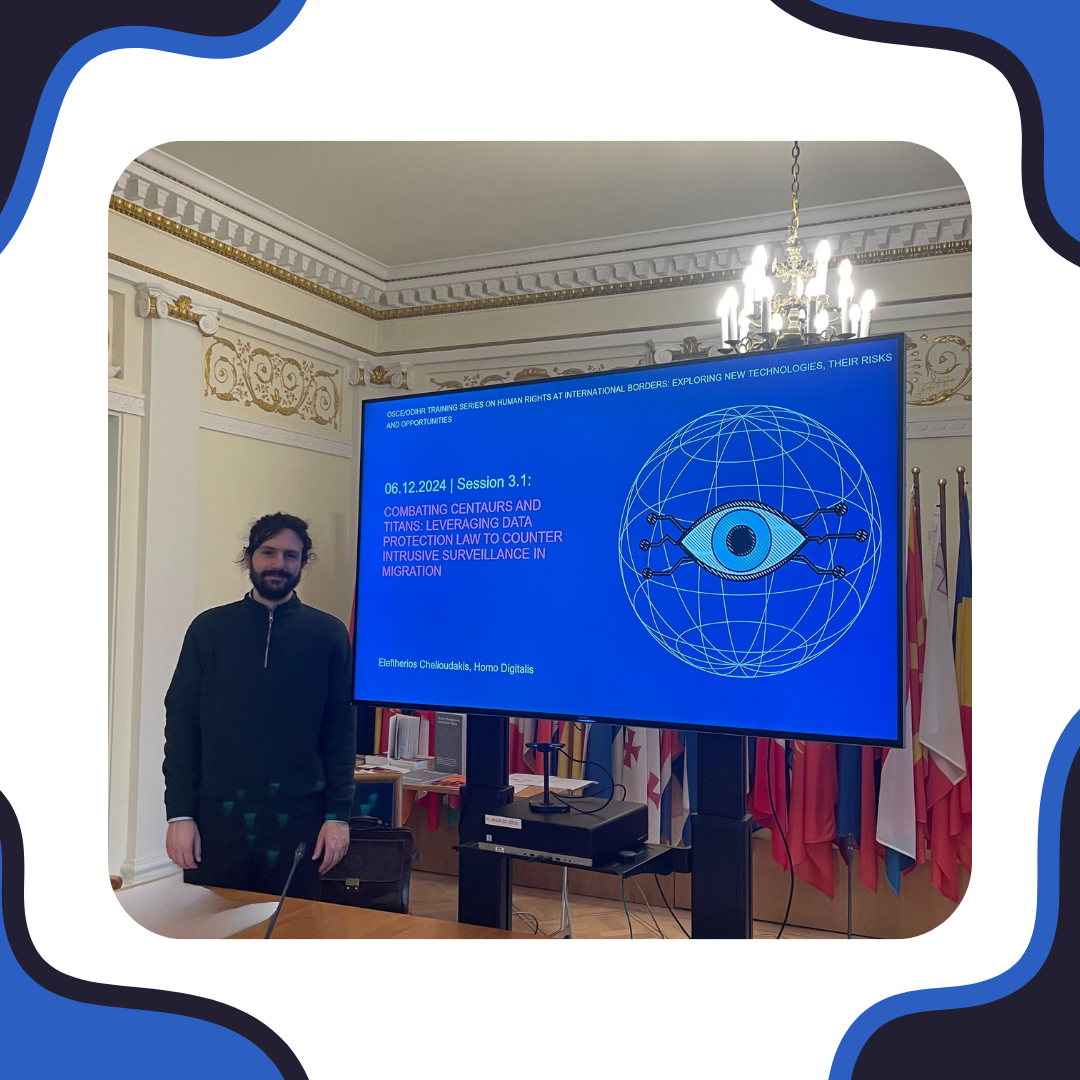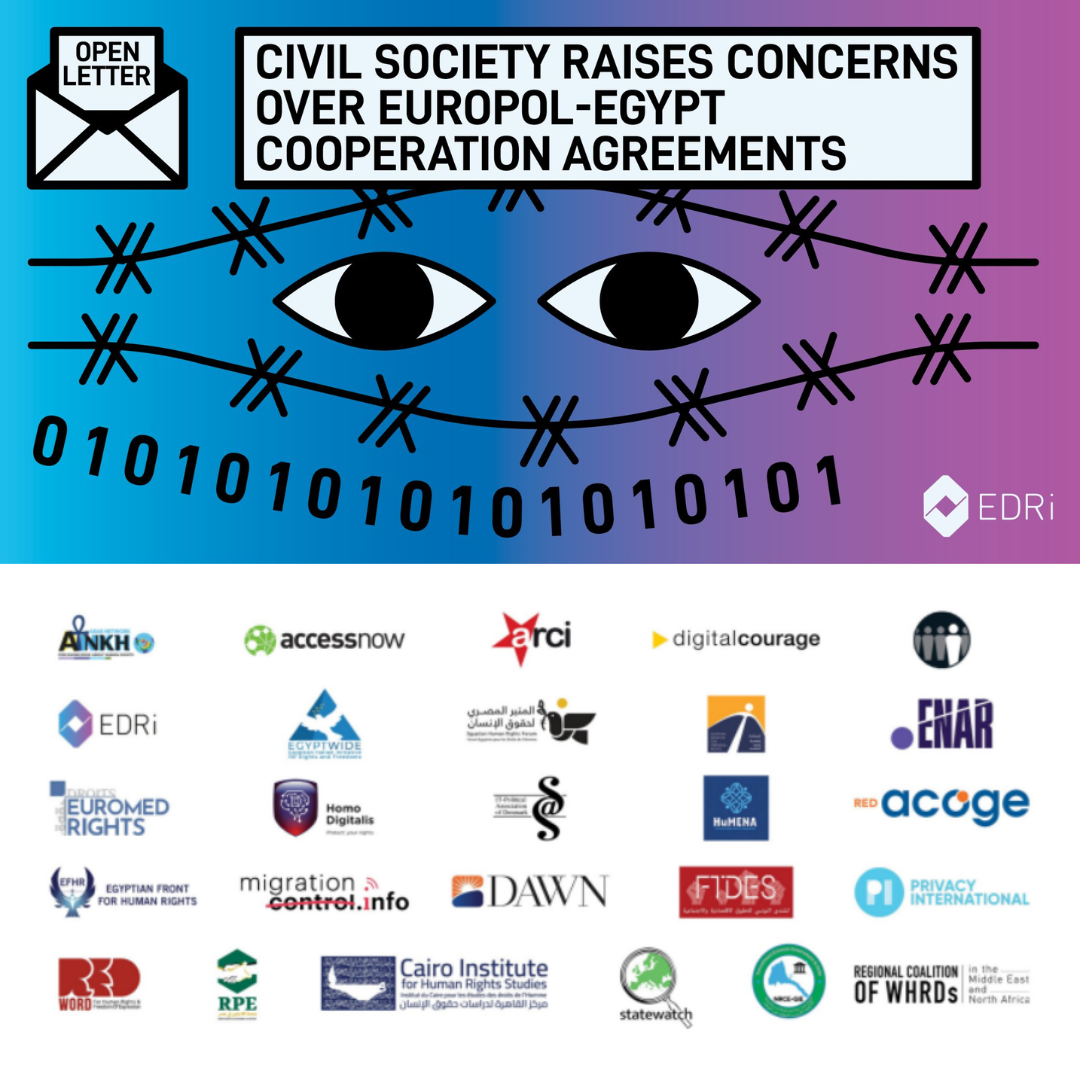Civil Society Demands: EU Commission Must Close e-ID Loopholes!
The final technical design of the European Digital Identity Wallet is currently under negotiation. These blueprints will have a big impact on whether or not users will be sufficiently protected when using Europe’s upcoming digital identity system. In concrete terms, this is currently being negotiated in the eIDAS implementation acts between the EU member states and the European Commission.
The positive changes in the first batch of technical rules show: Civil society works! Together with 15 organisations we thank the negotiators and acknowledge these significant improvements for privacy and human rights safeguards. The most recent proposals, however, still have some severe privacy and transparency problems that we address in our open letter to the European Commission.
What is the problem?
The eIDAS regulation lays out concrete rules for those companies and government agencies who want to access personal information from citizens’ Wallets. This could be for example an online platform, a public transport company or your doctor. It obliges these so-called “relying parties” to register their intended use of the Wallet, that is which attributes they intend to request from users. The regulation also prohibits them from asking information that goes beyond their registration. This could mean for example that, according to its registration, an online shop is only allowed to ask for your name and address but not your birth date or other information. A porn platform might use the Wallet to verify your age, but couldn’t obtain not any other information about you or use other means to track your behaviour.
To protect everyone from such illegal requests, the EU’s Digital Identity Wallet needs to know what personal information a relying party is actually allowed to access. The EU Commission, however, proposes a loophole which would leave it to the Member State that registered the relying party to decide whether the Wallet knows about the contents of the registration or not. This would allow Facebook Ireland to circumvent the protections and ask European users for everything. Furthermore, the public register of relying parties risks being useless without harmonised specifications on how to access it and what results to expect. Ultimately, the trust we will put in the Wallet will depend on the protections and transparency that we can rely on.
15 Organisations demand: The Commission’s Loopholes Must be Closed!
If these loopholes remain, this would have disastrous consequences. Any discrimination based on illegal access to attributes in the Wallet (health, gender, income, etc.) would be unchecked. Given the track record of lax data protection enforcement in countries like Ireland, companies like Facebook Ireland would likely have a wildcard certificate, virtually empowering them to request any data they want. Member States dedicated to protecting their users from illegal requests (e.g. Germany, the Netherlands, Spain or Austria), on the other hand, would be incapable of doing so.
We therefore ask the Commission to make relying party registration certificates mandatory for all relying parties and to issue a harmonized specification to access the relying party registry of each Member State.
The President of Homo Digitalis, Elpida Vamvaka, is Invited to WEF at DAVOS: Recognition on a Global Stage
We are thrilled to announce that Homo Digitalis has been invited to participate in an esteemed panel discussion at DAVOS, organized by the Swiss Financial Innovation Desk (FIND) of the State Secretariat for International Finance and the Permanent Mission of Switzerland to the UN in Geneva in the context of the World Economic Forum (WEF).
Event Details:
Topic: Doing More with Less: How to Address Growing Needs in Times of Economic Uncertainty
Date & Time: Tuesday, January 21, 2025 | 17:00-18:30
Location: Crystal Lounge, Davos
Our President, Elpida Vamvaka, will join a distinguished panel of global leaders to discuss how emerging technologies such as Artificial Intelligence (AI), Blockchain, and Central Bank Digital Currencies (CBDCs) can empower governments and organizations to address critical global challenges in times of economic uncertainty. Specifically, in the panel hosting our President, Elpida Vamvaka will be also speaking:
– Christoph König, Deputy State Secretary, State Secretariat for International Finance
– Kelly Clements, United Nations Deputy High Commissioner for Refugees
– Morten Bech, Centre Head Switzerland, Bank for International Settlements (BIS) Innovation Hub
The moderator of the panel will be Eva Selamlar, Head of Swiss Financial Innovation Desk (FIND)
While we celebrate this global recognition, it underscores the need for similar trust and acknowledgment at the national level in Greece. Strengthening Greece’s commitment to technological innovation and policy foresight will pave the way for meaningful change.
You can find more details about the event here.
Let’s make human rights-oriented innovation the cornerstone of a brighter and more resilient future – for Greece and the world.
Joint Statement on the Upcoming European Commission Guidelines on Prohibited Practices of the AI Act
We are publishing a joint statement on the upcoming European Commission Guidelines on Prohibited Practices of the AI Act.
On December 11, 2024, the European Commission completed its public consultation on the interpretation of the definition of an AI system and on prohibited AI practices, in accordance with the provisions of Regulation 2024/1689 (AI Act). Homo Digitalis participated in the related process.
In the context of the issuance of the expected guidelines by the Commission, concerns remain about potential gaps that could jeopardize fundamental rights. For this reason, and together with more than 25 civil society organizations, academics, and other experts, we are issuing a statement today, urging the AI Office and the European Commission to ensure specific demands.
You can read our joint statement here.
Eleftherios Chelioudakis of Homo Digitalis as a Trainer in the 3rd OSCE ODIHR Training on Personal Data & Border Management
From December 4 to 6, Eleftherios Chelioudakis, our Co-founder and Executive Director, participated as a trainer in the third training session organized by the international organization OSCE, specifically its Office for Democratic Institutions and Human Rights (ODIHR) in Warsaw. The training explored the use of new technologies at international borders, as well as the risks and opportunities they pose for Human Rights.
In our five presentations, we focused on the technologies used at borders, the Human Rights impacted by these uses, the provisions of the GDPR and Directive 2016/680 LED, the significant decision by the Hellenic Data Protection Authority (HDPA) regarding the “KENTAYROS” and “YPERION” systems, as well as technical tools that human rights defenders can use in their work!
We extend our heartfelt thanks to the participants for their dynamic presence, to the team of outstanding trainers Nikola Kovačević, Djordje Alempijevic, and Arancha Garcia del Soto for their knowledge and expertise, and to the organizing team, Lola Girard and Veronica Grazzi, for their impeccable organization and contributions. It is a great honor for us to participate!
You can learn more here.
Stefanos Vitoratos from Homo Digitalis interviews Michalis Kritikos on the Digital Dialogues podcast for DGSG!
Is there fear or optimism regarding the impact of Artificial Intelligence on our lives?
In the 7th episode of the Digital Dialogues podcast, Michalis Kritikos, Expert on Artificial Intelligence Law at the European Commission and the Hellenic Foundation for European & Foreign Policy, speaks with Stefanos Vitoratos, the coordinator of the Digital World Summit Greece and Co-founder of Homo Digitalis, about the governance of Artificial Intelligence, its relationship with human rights, and the opportunities it brings to Greece and Europe.
At the same time, he analyzes the factors that shaped the “summer of Artificial Intelligence,” the alignment of the Green Transition with the development of Artificial Intelligence, and the implementation of the Artificial Intelligence Act in Greece.
It is a great honor for Homo Digitalis to be collaborators of the Digital World Summit Greece once again this year!
Listen to the entire discussion on the Digital World Summit Greece Spotify here.
Civil Society Calls on EU to Stop Europol-Egypt Agreement
Civil society is raising the alarm over a proposed agreement between Europol and Egypt. A coalition of 41 organisations and experts, including European Digital Rights (EDRi), has sent an open letter to the European Commission urging it to halt these negotiations.
If signed, the agreement risks legitimising illegal practices by Egyptian police and could pave the way for deeper cooperation with Egyptian authorities, including the harmful sharing of personal data.
This agreement is part of the EU’s broader strategy for police and judicial cooperation, border control, and migration in the Mediterranean region. However, such actions conflict with the EU’s fundamental rights standards. Egypt, which holds an estimated 60,000 political prisoners, has been flagged by the UN for systemic torture and ill-treatment of political opponents and government critics.
We call on the European Commission to:
–Halt the agreement,
–Ensure transparency on human rights and data protection assessments,
–Demand reforms in Egypt to uphold human rights, civil liberties, justice, and democracy.
Read and share the full open letter here.
Statements from our President, Elpida Vamvaka, at the 13th e-Business & Digital Marketing World 2024
The President of Homo Digitalis, Elpida Vamvaka, represented us with a speech at the 13th e-Business & Digital Marketing World 2024, with the central theme: “From WOW to HOW: e-commerce and digital marketing in the AI era!”, which was organized by SmartPress S.A. in December 2024.
Both her speech during the panel she participated in and the statements she gave to the organizers after the conference are now available.
You can view her statements here. You can view her speech and the panel she participated in (04:11:00) here.
The Award-Winning Cartoon Series Super-Cyber Kids Now Has Subtitles
The award-winning cartoon series Super-Cyber Kids, a production by ISC2 Hellenic Chapter, ICSI HELLAS S.A., and Homo Digitalis, with the support of ADACOM Cyber Security, Eurolife FFH, bora, and RESET CONSULTANTS, is now available with Greek subtitles! A big thank you to the amazing Panagiotis Soulos for this significant volunteer initiative!
- How can excessive use of social media negatively impact children’s performance in school or sports?
- Are there risks of personal data leaks and password theft when connecting to third-party WiFi networks?
- How do incidents of cyberbullying occur?
- What connection might cybersecurity have with the evolution of a war like the Trojan War?
- How can a teenage team win a soccer match by spying on their opponents’ social media?
Answers to all these questions and much more are provided in the five episodes of the series, available for free on our YouTube channels here.
Homo Digitalis Collaborates Once Again with the Digital World Summit Greece
We are delighted to announce that, for yet another year, the Digital World Summit Greece (DWS Greece) and Homo Digitalis are moving forward with a strategic partnership!
The Digital World Summit Greece (DWS Greece) aims to promote the democratic governance of new technologies. As a dialogue platform, it brings together diverse stakeholders and groups, shaping policies from the grassroots level to the top on issues related to artificial intelligence, platforms, the Internet of Things, and broader technological domains.
Homo Digitalis has actively supported DWS Greece since its inception, and it is a great honor for us to continue doing so dynamically. Together, we aim to contribute to the maturation of public discourse in Greece on issues related to digital rights.
You can learn more about the activities of the Digital World Summit Greece on their website, here.








